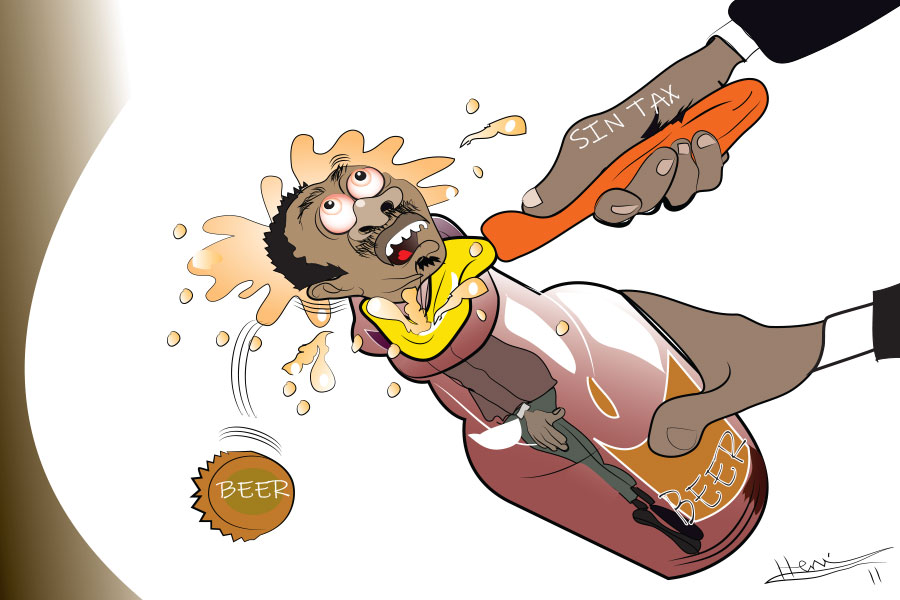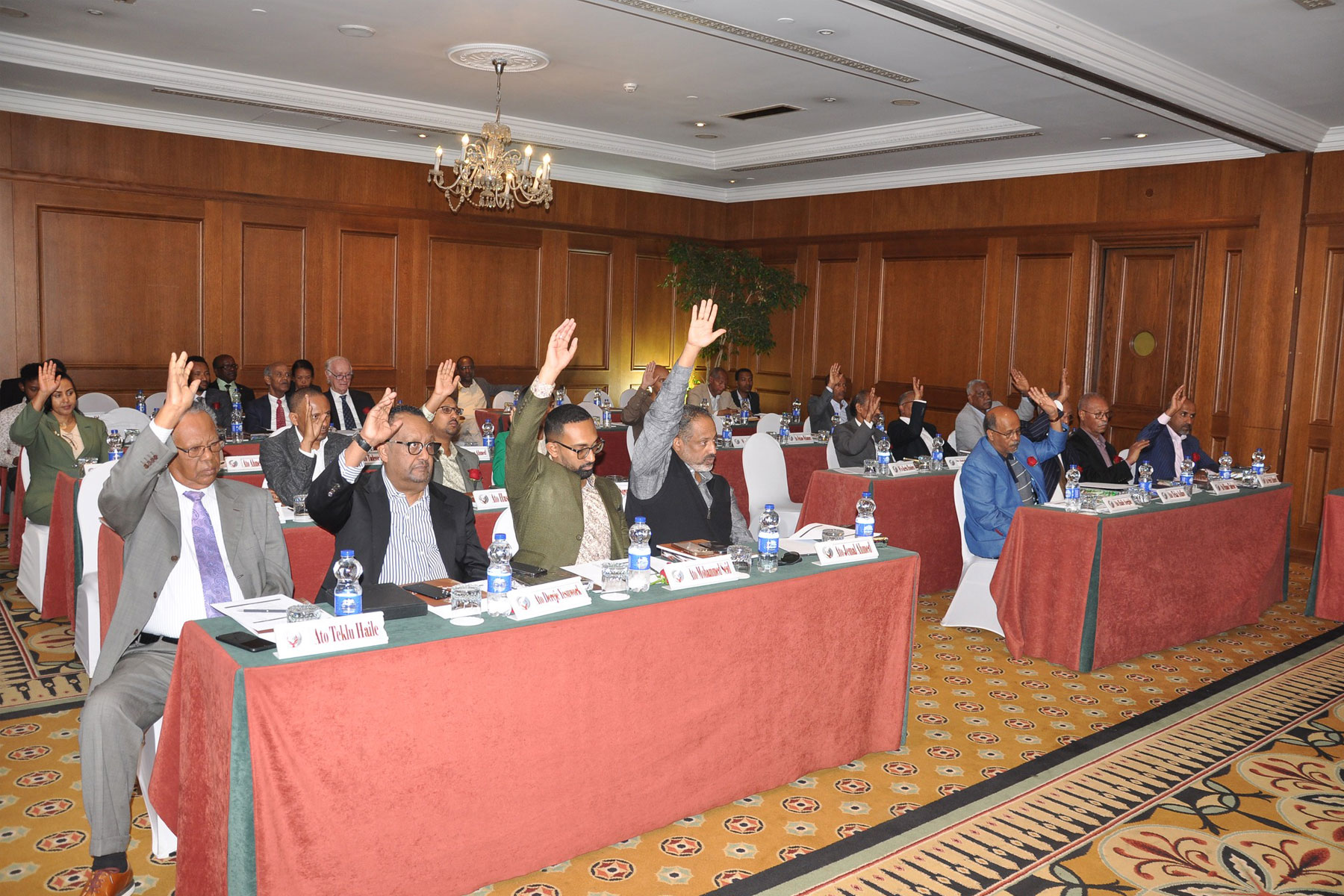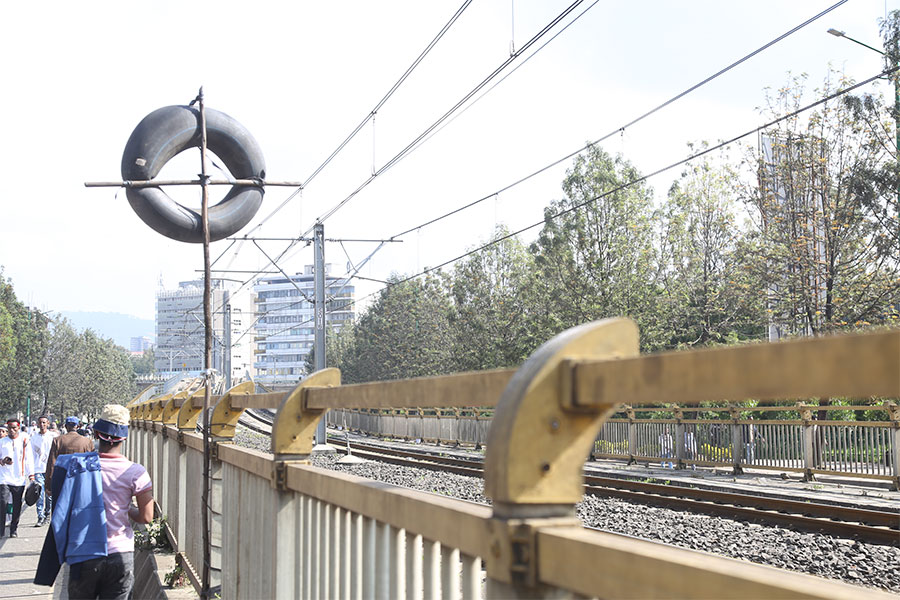
Radar | Jun 29,2025
Tour operators are dissatisfied with the draft by the Ministry of Finance that will not exempt them from paying Value Added Tax (VAT). They have been in uproars over what they believe is an “unfair tax” levied on the tourism sector, although it generates foreign currency. However, the law does not exempt the sector from VAT as it applies to the export sector.
Ethiopian Tour Operators Association (ETOA) President Andinet Feleke said that the association had asked the Ministry to revise the proclamation with claims that these organisations’ services be viewed differently. She said that although the Ministry had promised to look into it, the new draft did not change anything.
They are apprehensive about double taxation as they already pay tax dues when the tourist accounts for hotel fees. However, policymakers at the Ministry do not recognise tour operators as entitled to the exemption as the export sector enjoys.
The association has been working with the Addis Ababa Chamber of Commerce & Sectoral Associations (AACCSA) to voice the dilemma. According to Secretary-General Shibeshi Betemariam, tour operators should not be imposed to pay this tax as they play a crucial role in facilitation.
A draft from the chamber with the voices of hundreds of tour operators on the verge of collapse was submitted to the Ministry of Finance three weeks ago. It suggested that tour operators pay the highest-low rate of six percent, mentioning other countries’ experiences, such as Greek and Spain.
Tourism has hit a rough patch in the past three years in the aftermath of the worldwide pandemic coupled with the two-year war in northern Ethiopia. The industry is apprehensive that adding tax to the dwindling business seals on their unfortunate fate. Tour operators have been subjected to 15pc VAT for nearly two decades following the Parliament’s approving an edict for business organisations that make over 500,000 Br transactions to register.
Currently, over 2,000 tour guides are estimated to be operating nationwide. Established in 2003, the association comprising 248 individuals and tour and travel agencies has seen 10 of them dwindle with the prospect of more shutting down.
“If the civil war hadn’t done the damage, the VAT affects tourism badly,” said Andinet.
Kibran Tourists Agency was incorporated two decades ago with three million Birr capital. After becoming a private limited company in 2006, its capital has increased to 7.5 million Br.
The founder Assefa Azene, recalls superintending to more than 2,000 tourists each year with five million Birr in annual revenues before the pandemic hit. With the business dwindling to almost non-existent, Assefa says he works with 20pc of his employees.
“I had to let go of forty people,” he told Fortune.
Tour operators claim that authorities should have extended a saving hand, considering what the industry has been going through for the last two years.
According to the associations, the absence of clear and separate regulations from the Ministry of Tourism is a hazard in fulfilling tax obligations. Andinet blames the constant reshuffle of officials at the Ministry for the inconsistency.
“Authorities don’t understand the value tour operators bring to the industry,” she said.
Legal and tax-policy officials from the Ministry of Finance have received several grievances from the tourism industry over the last year. They plan to discuss with the association to address the claims raised by tour operators with the prospect of draft revision if enough justification is provided.
In 2020, around 2.28 billion dollars was generated from the tourism sector. Close to two billion dollars was generated last year, suffering the loss of a third of its annual average revenues. The previous Ministry of Tourism & Culture had hoped to generate 23 billion dollars by the end of 2022. However, according to Andinet, more than three thousand tourists that had visited the country three years before downsized in number to twenty in a year.
The federal budget generated revenue growth of 17pc from 51 billion Br in 2020/21 from value-added tax on services, eyeing an increase of nine billion Birr in revenue last year.
Tadesse Lencho is an Assistant Professor at Addis Abeba University and managing partner of Tbest Law Firm, whose research interest has been Ethiopian tax policy and legislation. He explained that VAT should come from the consumer rather than the service provider, with the tourist exempted in this case as they are not citizens and get service for a few weeks.
According to him, tourists covertly pay unlawful tax to the operator, anticipating the VAT they will pay for the services. Therefore, he recommended an overt demand requiring the operator to pay VAT and refund the tourist at the airport, as European countries operate.
“Tourists are at a disadvantage here, not tour operators,” he said.
He believes that when a complaint arises from any sector concerning VAT, the fear is actually about being subjected to regular reporting and compliance costs every three months. “VAT is an informant, and some may want to avoid transparency,” Tadesse told Fortune.
Although Tadesse acknowledges that no law has identified tourism as an export sector, he does not deny its role in economic growth. He suggests a three-year tax relief period to let the sector revive from the aftermath of the pandemic and war.
PUBLISHED ON
[ VOL
, NO
]

Radar | Jun 29,2025

Editorial | Jun 22,2019

Editorial | Jun 14,2025

News Analysis | May 18,2024

Advertorials | May 23,2025

Radar | Oct 01,2022

Viewpoints | Sep 10,2023

Fortune News | Jun 20,2025

My Opinion | Sep 21,2024

In-Picture | Mar 02,2024

Dec 22 , 2024 . By TIZITA SHEWAFERAW
Charged with transforming colossal state-owned enterprises into modern and competitiv...

Aug 18 , 2024 . By AKSAH ITALO
Although predictable Yonas Zerihun's job in the ride-hailing service is not immune to...

Jul 28 , 2024 . By TIZITA SHEWAFERAW
Unhabitual, perhaps too many, Samuel Gebreyohannes, 38, used to occasionally enjoy a couple of beers at breakfast. However, he recently swit...

Jul 13 , 2024 . By AKSAH ITALO
Investors who rely on tractors, trucks, and field vehicles for commuting, transporting commodities, and f...

Oct 25 , 2025
The regulatory machinery is on overdrive. In only two years, no fewer than 35 new pro...

Oct 18 , 2025
The political establishment, notably the ruling party and its top brass, has become p...

Oct 11 , 2025
Ladislas Farago, a roving Associated Press (AP) correspondent, arrived in Ethiopia in...

Oct 4 , 2025
Eyob Tekalegn (PhD) had been in the Governor's chair for only weeks when, on Septembe...